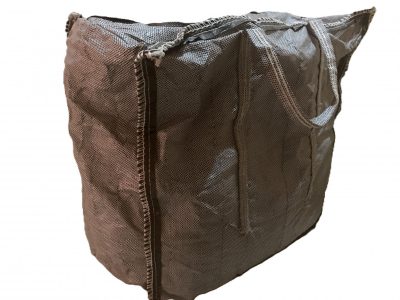TONGUES: The Story and Slang Behind Ghana Must Go (GMG) Bags

Ghana Must Go: A Bag and a Story
My name is Admassu, and I was 21 when I first touched down in Lagos. The air was hot, the city alive, and my head spun with words I didn’t understand. Everyone was speaking English. Sort of. The version of English they spoke was faster, richer, laced with meaning. They called it pidgin.
From Nigeria to Ghana to Kenya, I was chasing roots. But what I found along the way were tongues: playful, coded, sometimes sharp, sometimes soft. Slang isn’t just street talk. It’s memory. It’s migration. It’s resistance.
I remember the first time I saw a Ghana Must Go (GMG) bag in Lagos. I stayed with a cousin in Surulere. One evening, we were off to the market when he yelled, “Admassu, grab that GMG bag!”
I looked around, confused. GMG?
He pointed to a loud plastic bag with blue, red, and white checks. I laughed. “What’s GMG?”
He smirked. “Ghana Must Go.”
I thought he was joking. He wasn’t.
There was a story behind the name of the bag. For the ‘unschooled’, these plastic bags are called Ghana-Must-Go (GMG) bags in West Africa. The bag derived its name from the public antagonism that followed the influx of Ghanaians into Nigeria between 1975 and the early 1980s in the aftermath of the economic devastation of the Ghanaian economy.
It turns out that between the late 1970s and early 1980s, Nigeria’s economy was booming with oil wealth and job opportunities. Ghanaians flooded in, looking for work as teachers, drivers, cooks, and pretty much whatever work they could find to earn Naira, which was stronger than the Ghanaian Cedi. In those days, it was not uncommon to find Ghanaian PhD holders who were working as drivers. Although it was welcomed at first, the surge of illegal migrants led to government action to expel them when the economy dipped. When the Nigerian government turned on the migrants in 1983, a mass expulsion began.
The Ghanaians had to leave fast. No time for fancy suitcases. So they grabbed these cheap woven plastic bags from roadside traders. The kind you can throw on a bus or carry through the dust. These plastic bags were commonly purchased luggage bags that were grabbed hurriedly for the unceremonious trips that Ghanaian returnees had to make to get back home.
Sold by petty traders around airports and motor-parks, the simple bags soon became the breakout star of the story. And that’s how the name “Ghana Must Go” was born: a simple bag with a loaded past.
Everyone in Lagos knows the GMG bag. It’s the butt of jokes. A symbol of hustle. But also of survival. In recent times, the bags have gained notoriety for being the preferred choice of politicians for conveying looted public funds. Some say it’s become the politician’s favourite suitcase. Often stuffed with cash and moved in the dead of night. Plastic doesn’t leave fingerprints.
At the airport, I saw a family using one. A toddler was asleep on top of it. Life goes on.
In Ghana and Kenya, they also had their versions. In Accra, they don’t call it Ghana Must Go. They just call it a bag. But when I explained the Nigerian name, people laughed. One woman said, “Ah, we know that story. But we didn’t name the bag after ourselves!”
In Nairobi, I heard similar slang layers. People said “mkokoteni” for carts, “nyama choma” for grilled meat, and “socks” for stolen Wi-Fi. Each slang word was a tiny window into how people lived.
I started collecting pidgin slang as I travelled. “Omo” in Nigeria means child, but it can also mean “wow”, “you messed up”, or “that’s deep.”
“Abi?” means “right?” and “wahala” means “trouble.”
In Ghana, “Chale” is everything—hey, friend, let’s go.
In Kenya, “sasa?” means “what’s up?”
Pidgin is local. But it spreads. It tells you who’s in, who’s out, who remembers, and who forgets.
I may have grown up in London, but after this trip, I speak better African. Not the dictionary kind. The street kind. The kind you won’t learn in school—but you’ll hear in the taxi, at the bus stop, at grandma’s house, and in WhatsApp chats.
Share Yours—It’s How We Keep the Tongue Alive.
Do you have community slang where you are? Do your people have a word that means everything—and nothing at once? Share it.
Because when we share slang, we share memory. And when we share memories, we build a home.
#GhanaMustGo #AfricanSlang #DiasporaJourney #FeelnubiaVoice
Read more stories about languages
